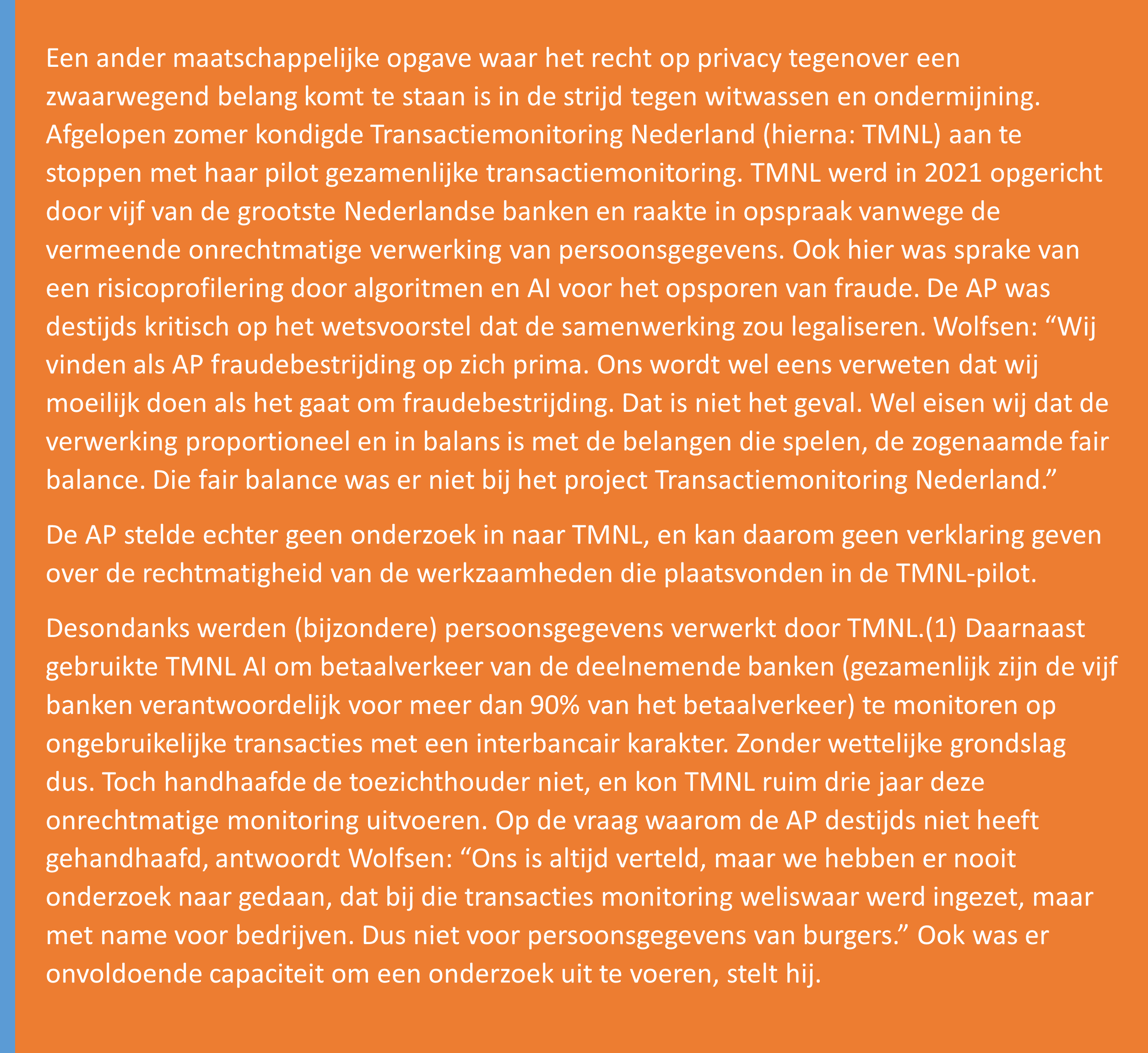During the celebration of the 15th anniversary of the EU Charter of Fundamental Rights, Aleid Wolfsen, chairman of the Autoriteit Persoonsgegevens, called for a constitutional review. He sees this as an opportunity to re-establish the core values of the rule of law in society. His call did not come out of the blue. Wolfsen placed a somber note to the celebration and pointed to large-scale violations of fundamental rights, such as in the allowance affair and the DUO scandal. In an interview with PONT | Data & Privacy, he talked about the increasing pressure on the rule of law, the risks of erroneous profiling and the importance of revising the constitution.



